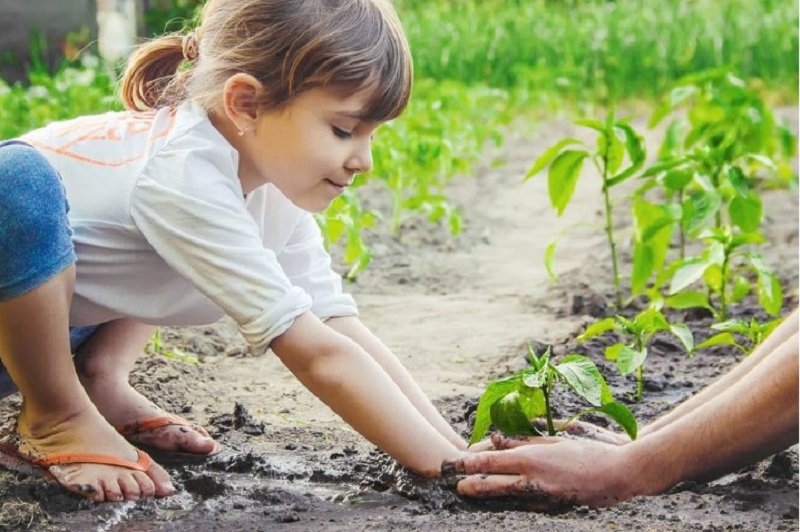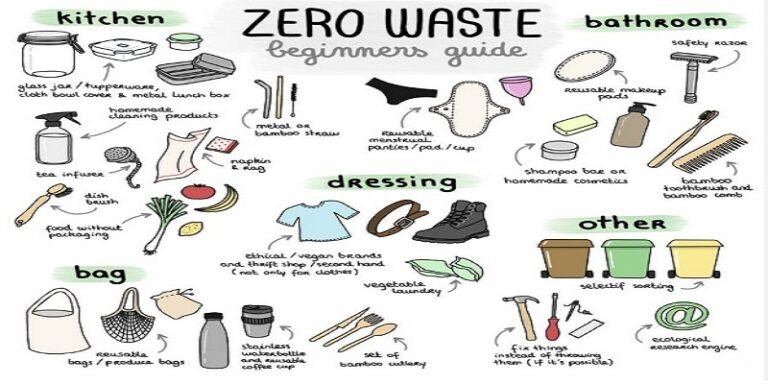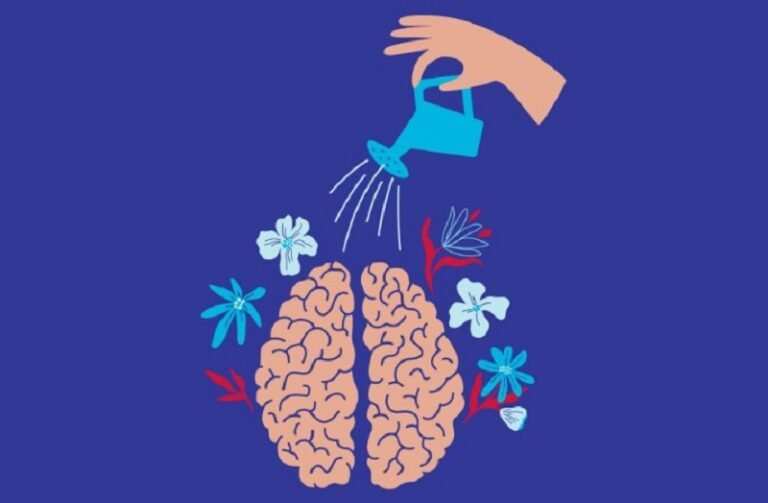Sow to Grow: Exploring the Positive Benefits of Gardening for Children

Understanding Gardening Benefits
Gardening is way more than just a pretty yard with flowers. It enriches both the mind and body, acting as a soothing practice for many.
Mental & Physical Health
Digging in the dirt does wonders for your mind and body. Doctors are all about gardens and green spaces because they help in many ways (NCBI). Getting your hands dirty in the yard can double as a workout, cutting down chances of heart issues, diabetes, and even some cancers.
Gardening doesn’t just beef up your body; it’s brain food too. It lifts mood, eases the mind, and brings cortisol down. Zooming into your plants gets you in the zone and lowers blood pressure—a cool hack for anyone wrestling with a mental health bump (NCBI). Here’s a peek at what gardening brings to the table for health:
| Health Benefit | Description |
|---|---|
| Mood Booster | Puts a dent in depression and anxiety |
| Stress Buster | Drops cortisol, knocking stress off |
| Heart Helper | Gets you moving for a happier heart |
| Brain Shield | Tied to lower chances of dementia in older folks |
| Blood Pressure Watch | Consistent gardening keeps pressure in check |
Want more on how gardening beats stress? Check this out.
Therapeutic Gardens
Those groovy healing gardens you see in hospitals and care homes aren’t just for looks. They’ve been used forever to create calming vibes and improve how patients feel. Bonus points when they support nature’s variety (NCBI).
These garden havens in healthcare spots give patients something lovely to gaze at and stroll through, an absolute win for recovery. They’re a breath of fresh air for folks in spinal care and long-stay patients. These gardens calm people down, offering a natural retreat for mindfulness and contemplation.
Families can dig the garden vibe too—it’s awesome for bonding across generations and giving kids a health boost (NCBI). Curious about the good it does kids? Dive into sections on executive skills and how it aids in their growth.
Gardening doesn’t cost a bomb and is accessible to boot, serving up a healthy platter to boost life quality. By getting busy in the garden, folks can tap into a wealth of benefits tackling both body and mind needs. Drop by our guide on gardening and mindfulness for more on using nature to tackle stress and mental strain.
Health Benefits of Gardening
Gardening does wonders for our health regardless of age, boosting physical, mental, and social well-being. Below, we’ll dig into two main benefits: the combo of getting your body moving while making friends, and its magic in keeping the mind sharp.
Physical Activity & Social Interaction
Gardening gets you moving, soaking up the sun, and chatting with pals. It’s a triple win! As you plant, dig, and water, your muscles work hard, giving them a nice workout. Plus, fresh homegrown fruits and veggies straight from your garden can point your diet in the right, healthy direction.
It’s not just about muscles though. Gardening helps people of all ages: kids can become little gardeners with boosted motor skills and happier moods, all while learning to share (Nurture UK).
| Age Group | Moves the Body | Grows Friendships |
|---|---|---|
| Kids | Builds motor skills | Teaches sharing and teamwork |
| Adults | Boosts fitness | Zaps loneliness |
| Elders | Keeps the mind active | Gives a sense of community |
Curious how gardening can shake off stress? Check out our gardening for stress relief piece.
Lower Prevalence of Dementia
Engaging in gardening offers more than just the opportunity to enjoy fresh produce and experience the outdoors; it also provides significant cognitive benefits, particularly for older adults. It can slow down brain aging and even cut down the risk of dementia.
As we cruise through life, our brains can use a bit of a tune-up now and then. While planting seeds or pulling weeds, older folks may find their memory and thinking get a little spruced up. Gardening dances into other health benefits too, like better blood pressure and a trim waistline.
Kids aren’t left out of the party here—they feel less stressed and munch more veggies when they get their hands dirty. This habit can grow into a lifelong love for nature and health.
Want more on how gardening buoys your mind? Don’t miss our take on gardening and mindfulness. Curious about why it’s especially good for the older crowd? Try our gardening benefits for seniors article.
Gardening for Children
Gardening sprinkles a bit of magic into kids’ lives. It not only perks up their thinking caps but also gives those brain muscles a good workout. Let’s dig into how playing in the dirt can do wonders for children’s growth.
Executive Functioning Skills
Kiddos get a major brain boost when they’re plotting and planting gardens. They’re sharpening their executive functioning skills, which might sound fancy but is just a big ol’ mix of brilliant abilities:
- Task Planning: Mapping out garden goals
- Organizing: Sorting seeds and making sense of schedules
- Problem Solving: Figuring out what went wrong when the tomatoes don’t sprout
There’s lots of chatter involved too. Asking questions like, “What if we go on a water strike?” nudges kids to think on their feet and roll with changes. This gets their gears turning, powering up their flexible thinking.
Cognitive Development
Playing gardener nurtures several brainy skills. It’s not just about digging and planting; there’s some serious brainwork going on (Michigan State University Extension).
Brain Power Perks:
- Memory: Remembering those all-essential steps to make the garden flourish.
- Analysis: Watching plants grow and figuring out why some thrive while others nosedive.
- Prediction: Guessing what a plant will do based on its care and conditions.
This also nudges literacy. Kids gobble up plant names, scour seed packets, sketch out garden plots, and slap labels on their leafy friends. It’s reading and writing, green thumb style.
| Cognitive Power | Gardening Gig |
|---|---|
| Memory | Following plant care steps |
| Analytical Skills | Spotting and understanding growth signs |
| Predictive Abilities | Guessing plant responses to changes |
| Literacy Skills | Understanding seed info, garden planning, labeling |
There’s even more brain-boosting where that came from; check mental health benefits of gardening and gardening for stress relief.
By exploring garden tasks and plant parts, kids expand their understanding and grow curiosity-driven smarts. It’s a hands-on journey of blooming brains and sprouting insights, helping them connect with nature’s wonders. For more on how gardening grows young minds, head over to learning through gardening.
Children’s Development in Gardening
Gardening isn’t just about digging holes and getting muddy—it’s like a secret weapon for boosting kids’ mental and physical health. Let’s poke around and see how getting their hands dirty can help kids grow, learn new skills, and munch on healthier snacks.
Motor Skills & Sensory Stimulation
When kids get involved in gardening, they’re not just planting seeds; they’re growing their bodies too. Activities like lugging around tools and water cans give kids a chance to build big muscles and sharpen fine motor skills. This hands-on work—digging for worms, watering plants—gets their muscles used to doing precise stuff, like holding a pencil or tying shoelaces.
But wait, there’s more. It’s not just about muscles; gardening is like a playground for the senses. The feel of dirt between their fingers, the colors of the flowers, the smell of fresh leaves—all these experiences keep their brains buzzing, helping them learn to process and respond to the world around them.
| Activity | Skills Developed |
|---|---|
| Carrying Tools and Soil | Moving around with skill, Managing their own body |
| Digging and Planting | Toughening fine movements, Perfecting hand-eye teamwork |
| Watering Plants | Mastering object use, Sensory overload |
If you’re curious about how gardening can boost mental health, be sure to check out our article on mental health benefits of gardening.
Healthy Eating Habits
Guess what? Kids who play in gardens often end up eating more fruits and veggies. It turns out that growing your own food makes kids more excited about eating it. Schools that run gardening programs see kids getting curious and trying out different veggies without a fuss.
When kids dig in the dirt and watch their plants grow, they feel a sense of ownership. It’s their garden, and that carrot over there? They grew it! This feeling makes them more likely to give veggies a try—even the ones they used to turn up their noses at.
| Impact Area | Benefit |
|---|---|
| Vegetable Consumption | Munching more greens and trying new ones |
| Attitude Towards Vegetables | Developing a taste for the green stuff |
| Willingness to Taste | Less scrunchy faces at the dinner table |
Leveraging these lessons, parents and teachers can use gardening to sneak healthy eating into kids’ lives. Interested in making mealtime less of a slog? Peep our article on gardening for stress relief.
Gardening isn’t just a hands-on activity that helps kids improve motor skills and sensory understanding; it’s a game-changer for building healthier eating habits. By weaving gardening into everyday life, families can nurture well-rounded, happy, and healthy kids.
Learning Through Gardening
Kids getting down in the dirt with gardening can open up a whole world of brain growth and emotional health. When they plant seeds and watch them grow, it’s like a hands-on science and life lesson wrapped into one.
Literacy & Cognitive Skills
Gardening’s like a secret classroom outside! When kids memorize plant names, read how long carrots need to sunbathe on seed packets, or draw up their dream garden, they’re sneaking in reading and writing practice.
| Literacy Activity | Benefits |
|---|---|
| Reading Growth Requirements | Cranks up reading skills |
| Naming Plants | Beef up vocab |
| Labeling Plants | Builds writing chops |
| Making a Garden Map | Visual smarts booster |
Turning dirt into food also gets kids thinking all sorts of clever things. They use their noggin to remember stuff, figure things out, and guess what might happen next. Toss some big questions their way about how plants work, and watch their problem-solving gears start turning (Michigan State University Extension).
Emotional Well-being
Growing stuff is also top-notch for kids’ feelings. Tending to plants can calm their minds, reduce stress, and introduce a bit of nature-induced chill. It’s like giving them a tiny garden universe where they’re in charge.
Playing plant parent teaches them responsibility and lets them see the fruits (or veggies) of their labor. They’re proud when those little green buds pop up — talk about an ego boost! Plus, nurturing another living thing can teach them big feels like empathy and patience.
Getting their hands in the soil can even perk up their eating habits. Tasting what they grow helps them make healthy connections with food. Hello, broccoli — goodbye, chips! Kids who garden are munching more fruits and veggies than those who don’t get dirt under their nails (Cornell University).
When kids have a regular gardening gig, they find peace in structure and lose themselves in the joy of growing. To spruce up outdoor fun, check out our tips on gardening and mindfulness.
In short, gardening’s a triple threat for kids: it builds smarts, boosts feelings, and teaches life skills. Want to dive into how playing in the dirt can boost mental health? Read more here.
Outdoor Activities for Children
When thinking about the good stuff gardening brings to kids, it’s kind of like giving them a secret boost in life. We’re talking about growing self-confidence, making friends, and sharpening those little minds. Who knew playing in the dirt could be so powerful?
Self-confidence & Social Skills
Gardening’s like nature’s self-esteem serum for kids. When they watch their plants sprout or gobble up veggies they’ve grown, their confidence skyrockets. It’s like their garden’s giving them a virtual high-five for a job well done. Kids literally see their efforts bloom, and it’s as satisfying as finishing a huge jigsaw puzzle.
Getting kiddos involved in group gardening? A total win-win. They learn to share shovels, work with pals, and chat about who’s doing what. It’s mini boot camp for life skills like teamwork and cooperation.
| What They Get | What It’s All About |
|---|---|
| Self-confidence | Growing plants boosts their belief in themselves. |
| Social Skills | Teamwork and talking through garden chores build social smarts. |
Cognitive Development Support
With gardening, kids are all in—a total sensory blast! Imagine them running their fingers through dirt, sniffing fresh blooms, and feasting their eyes on all those colors and shapes. This sensory play lights up those cognitive bulbs bright.
On top of that, gardening’s like brain boot camp. Kids get to practice planning where to plant, picking the right seeds, and keeping everything alive and kicking. It’s like a full-on rehearsal for problem-solving skills.
| Brain Boosters | What’s Going On |
|---|---|
| Sensory Stimulation | Seeing, smelling, and feeling all the garden feels sparks the senses. |
| Executive Function Support | Plotting, planting, and puzzling over plants sharpens decision-making. |
Want more on how gardening sprinkles magic on emotions and budding brainiacs? Swing by our article on gardening benefits for children’s development.
In their little outdoor paradise, kids don’t just grow carrots—they grow into awesome little humans, equipped with skills that’ll carry them far. For more on how gardening perks up mental juices, take a peep at our piece on mental health benefits of gardening.
Impact on Students’ Well-being
Social Good Vibes in School Gardens
School gardens go beyond tomatoes—they’re a place where kids can really shine socially. Research from Frontiers shows 11-12-year-old students are more confident during garden lessons versus your average desk session. When they’re knee-deep in soil, they learn teamwork, how to chat it out, and solve problems. These soft skills go a long way in life.
Gardening gets kids to team up, share chores, and lend a hand. This not only gives their social skills a boost but also creates community. Gardens turn into free zones for self-expression where friendships blossom, adding to their social smarts.
| Attribute | Classroom | School Garden |
|---|---|---|
| Social Competence | Soso | Tops |
| Teamwork Initiatives | Barely | High Fives |
| Communication Skills | Meh | Wow |
| Problem-solving | Ehh | Yep |
Cultivating Skills for a Brighter Future
Gardening ain’t just a spare time gig; it’s a learning experience forming future-ready individuals. Gardening gigs in schools ramp up life skills and self-discovery. Kids who plant stuff are often way ahead in science tests compared to those stuck inside (Cornell University).
Getting their hands dirty makes kids curious and eager to know more about the world. This practical approach invites them to dive deep into subjects like science and ecology, steering some toward nature-focused careers down the line (RHS). Plus, all those smells, feels, and colors of plants make learning a riot for young minds.
The goodness of gardening in schools is a feel-good ride that stretches way out. It nudges kids toward eating more greens and keeping the kiddie waistline in check. Benefits? Better food habits, more fruit and veg, and even healthier weights (NCBI).
For a deeper dive into how gardens give your mind a hug, check out our chats on mental health benefits of gardening and gardening for stress relief.
Doing a little digging in the dirt can work wonders for young ones. For an overview, take a peek at benefits of gardening for children. It’s a goldmine for parents and teachers keen on mixing learning with some green fun.
Family Involvement in Gardening
Getting the family into gardening isn’t just about planting seeds and pulling weeds; it’s about growing closer, learning from each other, and maybe even sneaking in some healthy habits.
Intergenerational Learning
When families dig into gardening together, something magical happens: knowledge passes from one generation to the next. Kids get the chance to soak up stories and wisdom from their parents and grandparents, connecting the past with the present. Imagine the little ones working side-by-side with grandma, understanding that gardening is more than just plants. It’s about life lessons, patience, and community. A little patch of earth can become a classroom without walls, fostering self-belief and a healthier lifestyle for the whole family.
Perks of Learning Across Generations:
- Wisdom Sharing: Older folks got tricks and secrets about gardening that books can’t teach.
- Family Togetherness: Sweat, laughter, and even a bit of bickering in the garden bring folks closer.
- Learning in Action: Mixes up hands-on skills with school smarts, boosting brain power.
For more tales on how gardening can take the stress off, hop over to our gardening for stress relief page.
Positive Health Outcomes
Gardening’s got the goods when it comes to keeping everyone feeling tip-top. It’s like nature’s gym, offering fresh food, exercise, and a mood boost all wrapped in dirt and sunshine. Whether you’re growing kale or simply pulling dandelions, it’s a workout for everyone’s appetite and mind.
Health Boosters from Gardening:
| What It Does | How It Helps |
|---|---|
| Eat Better | Feast on fresh goodies right from the backyard |
| Stay Active | Get muscles moving with each shovel and spade |
| Find Your Zen | Let plants work their calming magic |
| Make Friends | Gardens grow communities, one tomato at a time |
Gardening kept folks sane during pandemic days, offering solace to teachers, caregivers, parents, and kiddos alike. When everything else seemed uncertain, the garden stood steady, inviting the weary to find peace among the plants.
And let’s not forget the head honchos—teachers and principals—they’re the champions who push gardening as more than just a hobby; they make it a mission.
Ponder more on how sprouts and seniors go hand in hand in our gardening benefits for seniors article.
Getting the family out in the garden offers more than a bounty of veggies; it nurtures health in body, mind, and spirit. Plus, it plants the seeds for healthier habits that can last a lifetime.






